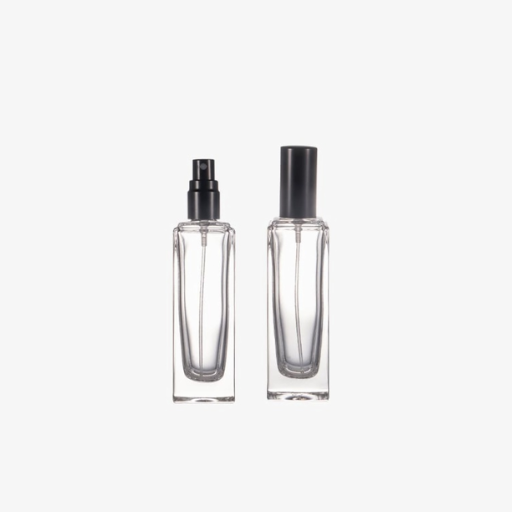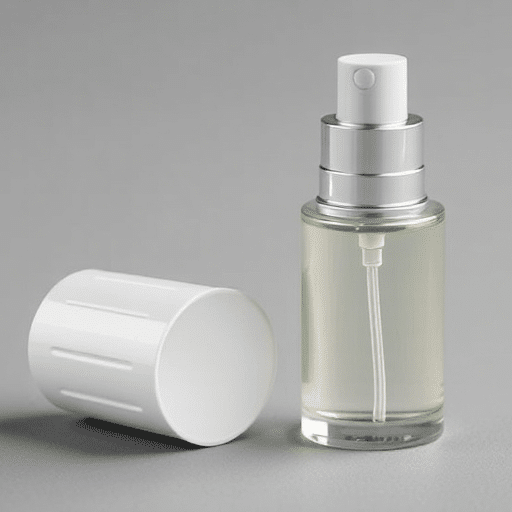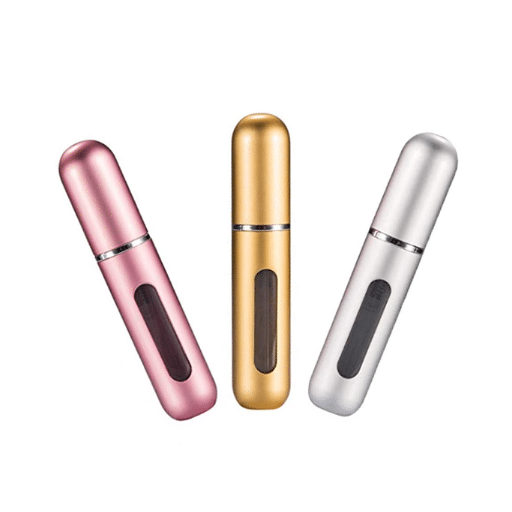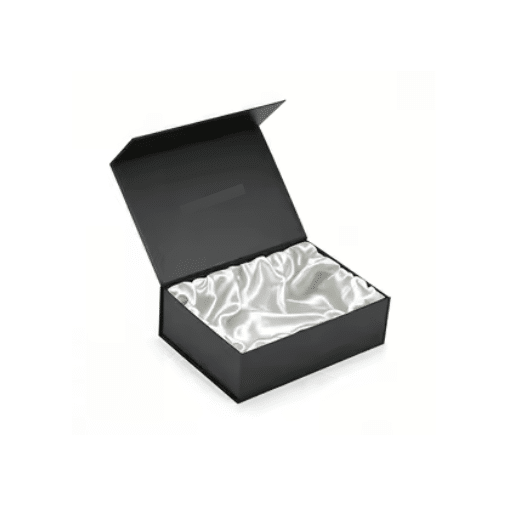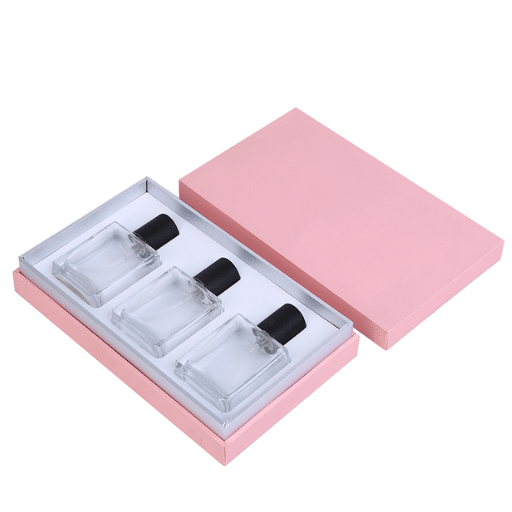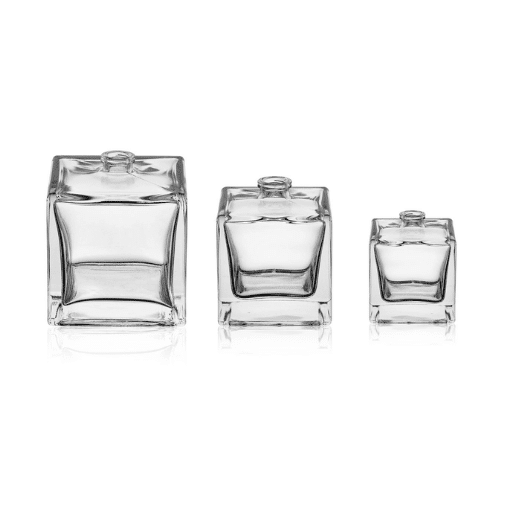From personalizing one’s style to elevating one’s elegance, perfume artistry has had its own identity; just like any prized possession, however, it does not last forever. It is well known that foods and cosmetics products as well as beauty products come with an expiration date. Likewise, your most cherished scents may not have the same charm as time progresses. This blog post aims to walk you through the indicators of expired fragrances, explain the reasons behind the deterioration of perfumes, and provide tips for prolonging their lifespan. As a perfume collector or an enthusiast who loves the occasional spritz, knowing when a scent has evolved is important so that every bottle in the collection signifies an experience rather than a disappointment. So, keep reading and prepare to uncover the secrets of being captivated and in control.
How can I tell if my perfume has expired or gone bad?
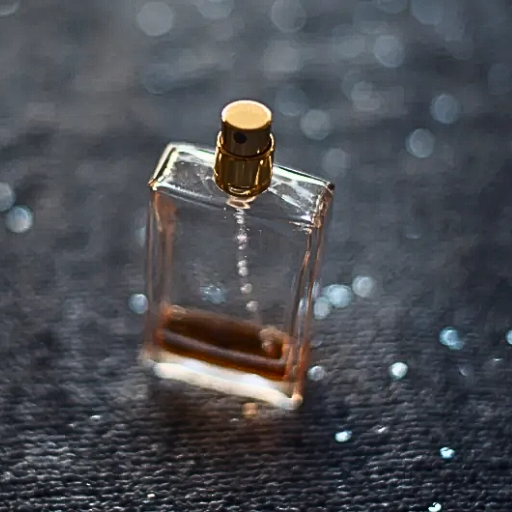
An expired scent may come with certain clear indicator signs, a few of which are:
- Change in Scent – If the whiff of the scent has transformed and smells more like sour metal, or even just sour is not a good sign.
- Change in Color – The darkening of perfumes, likewise to clothes over time, is suggestive of oxidation and deterioration.
- Change in Texture – It is no longer fresh if the liquid is cloudy with bits at the base of the perpetrating vessel, or if it has thickened.
Should any of these changes become evident, it is wise to discontinue the use of the fragrance to avoid an adverse experience. Placing your perfume in a cool and dark location can aid in maintaining its quality.
Recognizing unpleasant smell as a sign of expiration
Perhaps the most obvious sign your perfume has expired is when its scent changes. The perfume’s parts get ruined by heat, light, and oxygen, which in turn causes a change in scent. A good example is a floral perfume that has gone sour and musty, which in turn makes the perfume smell sharp and even chemically. This happens as a result of oxidation of organic ingredients.
Perfume manufacturers tell use that fragrances can last for 3-5 years, but that depends on the formulation and storage. Alcohol perfumes last longer than oil kids. But exposure to direct sunlight increases the likelihood of a shortened life span and more room temperature fluctuation shrinks the lifespan further.
To check its pungency, spray some perfume on your wrist. Wait a little for it to settle. If the top notes are too pungent, then chances are the perfume has expired. Keeping track of this ensures a pleasant experience with fragrances.
Skin irritation and allergic reaction to expired perfume
Expired perfumes can pose risks as their chemical composition can change over time and can lead to skin-related issues. The perfume components are more prone to breakdown and oxidization due to air, heat, or sunlight, leading to skin irritation. Sensitive areas of skin can suffer from inflammation, or more specifically, the application of expired perfume may lead to itching and redness. Even for those without sensitivities, the reaction in those with an allergic history can prove to be more severe. The allergic reactions triggered can be an allergic dermatitis flare-up for example.
Research indicates that perfumes older than 5 years may indicate expired compounds such as alcohols, or terpenes that could evolve into even more harmful slathering. Worsening the situation is the fact that old perfumes are stronger and contain more limonene and linalool which are hypoallergenic fragrances, meaning that they tend to induce allergic reactions. A common diagnosis is that repeated and prolonged exposure leads to yield compounding irritation, which in effect suggests that expired perfume should be avoided at all costs.
To prevent any risks, it is suggested that users check for allergic reactions by applying the perfume on a hidden part of the skin prior to use for a patch test with perfumes that are close to expiration dates. Avoid use immediately if any irritation occurs. To reduce the likelihood of these negative consequences, appropriate storage at cool, dark, and dry places helps extend the life of the fragrance.
Visual changes in perfume color and consistency
Perfumes over time may change in color and consistency which can indicate degradation or a change in composition. Typically, perfumes are formulated to have a stable vibrant hue; however, if exposed to light, air, and heat, they may darken or become murky. An example includes perfumes with high concentrations of natural oils, or vanilla notes which tend to turn oxidized brown.
Also, a perfume’s age may affect its consistency. A perfume that is excessively thick and forms sediment at the bottom of the bottle suggests a loss of freshness and indicates its ingredients have separated or broken down. In addition, these visual cues impact the overall profile of the fragrance. A study found that proper storage with a temperature of 50 to 70 degrees Fahrenheit and away from light significantly slows these changes, maintaining the appearance, scent, and oil ratios of the perfume.
What is the typical shelf life of perfume and how long does it last?
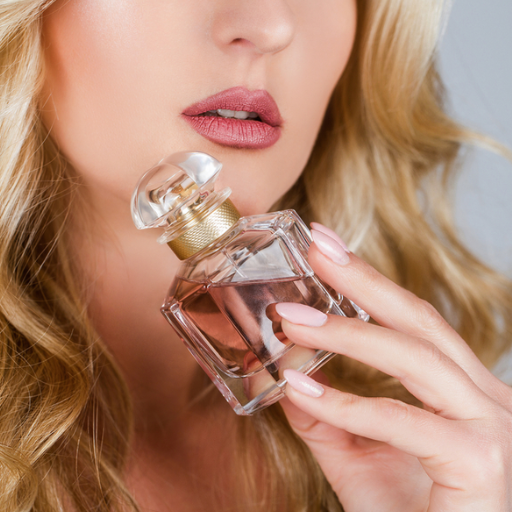
Perfume’s typical shelf life is between 3 to 5 years, although this could change based on specific ingredients, storage conditions, whether it’s a spray or bottled fragrance, or type of fragrance. Sprays with higher quantities of essential oils and lower amounts of water – pure perfume or perfume, tend to last longer. Keeping the bottle in a cool, dark place will help improve a fragrance’s lifespan. However, once opened, perfume bottles become more vulnerable to oxidation which speeds up their expiry date. Scent, color, and consistency changes also mark a sign that the perfume is no longer usable.
Factors that affect how long perfume lasts
Fragrance concentration, storage temperature, and individual skin chemistry seem to play a big role in how long a perfume lasts. Higher concentrations like perfume last longer, whereas improper storage, such as open sunlight or heat, decreases lifespan. Skin types and how one applies perfume also impact how long the scent lasts throughout the day.
Heavier base notes will last the longest
Heavier base notes like musk, sandalwood, patchouli, and vanilla are often more enduring as a result of their larger molecular structure. These notes tend to evaporate slowly compared to light top notes which explains their presence on skin for hours and even days in some situations. Scientific research indicates that these compounds’ longevity is a result of their heavier molecular weight as greater energy is required to break apart more massive molecules and cause them to dissipate into the surrounding air. An example includes sandalwood and patchouli molecules, which are highly oxidized, thus enhancing their longevity. Also, perfumes highly concentrated with these base notes are often preferred because they can act as a basis, propelling the fragrance to ensure its essence lasts over time. This explains why many fragrances prized for their luxurious nature and longevity depend heavily on base notes for depth and a lasting scent rely utilize these compounds.
How to test your perfume for freshness
Besides its quality, checking your perfume for freshness is very important so that it keeps its original fragrance. In this regard here are some useful steps and tips to determine whether or not your perfume has maintained its freshness.
1. Look for an expiration date: A lot of perfumes come with an expiration date on a label, or box, or some even come with a Period After Opening(PAO) symbol. This shows how long a product is still good for after being opened. A common example is ’24M’ for 24 months. When stored properly, perfumes tend to last between 3 to 5 years.
2. Check the color: A change in the color of the liquid can indicate deterioration. A Fresh perfume should have clear or lightly colored liquid. If it looks darker or more murky than when you first purchased it, this could signal oxidation or worse, contamination.
3. Sensitivity test: Smell check. Clean a small piece of paper or scrap cloth, and spray the perfume onto the cloth. If sour or metallic notes stand out, or if the scent is significantly altered, then the perfume likely has expired. The expected outcome is an inviting scent that aligns with the original notes of the perfume.
4. Assess the Condition of the Bottle: Make sure the cap, nozzle, and container are all intact. Leakage or damage would permit access of air and light to the perfume which may quicken oxidation, resulting in loss free freshness.
5. Place of Storage: Consider where you have kept the perfume. If it has been in direct sunlight, in hot temperatures or in humid areas, then it is likely to degrade at a faster rate. Perfumes retain their optimal quality when stored in cool dark dry places devoid of temperature fluctuations.
6. Assessing Effects on Skin: Perfume should be dabbed at pulse points like the wrist. Fresh perfumes are designed to bond with skin and release top, middle, and base notes sequentially during the evaporation process. If the fragrance fails to develop as expected or smells weak, it may have lost potency or freshness.
Should these conditions be properly observed, monitoring perfume’s condition can extend the lifespan of perfumes and maximize their effectiveness.
Does unopened perfume expire if kept in its original container?
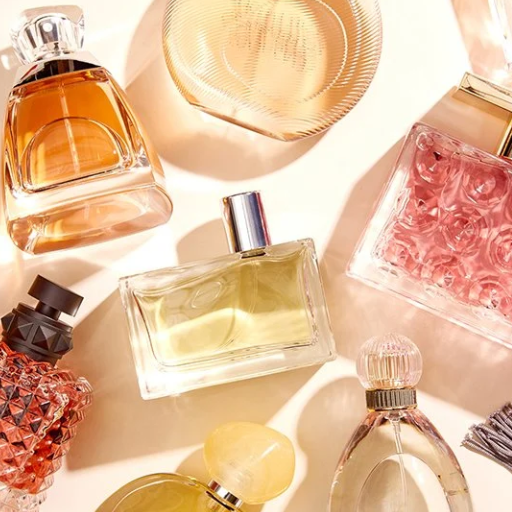
Yes, in a linear timeline, even unopened perfume can expire if it is not used. The expiration of any fragrance’s perfume is directly related to the amount of exposure it gets to factors such as light, heat, time, or even it’s basal chemical breakdown. Unopened perfume has an intact outer form, meaning no visible damage, thus no changes are noticeable. Still, perfumeries recommend checking outer packaging for visual changes every few years and suggest it can take 3 to 5 years before any noticeable changes do happen.
Shelf life of unopened perfume vs. opened bottles
Perfume bottles that are sealed off or with locking caps on have longer expiration due to confined perfume exposure to air and outside existences. However, once the cap is taken off, fragrance gets exposed to air, thus increasing degradation factors such as light and temperature control. Roughly calculated, opened perfumes need to be stored in low light settings to extend usability up to 3 to 5 years, after which one and five-star fragrances may last above five years but require regular upkeep to maintain deregulatory elixir phrases.
In the other hand, when a bottle is opened, the countdown begins when the perfume is subjected to air exposure, which can lead to oxidation and degradation over time. Opened perfumes usually have a shelf life of 1 to 3 years depending on the composition and how they are stored. For example, fragrances with higher alcohol content tend to last longer. This is because alcohol acts as a natural preservative. On the contrary, citrus or lighter floral scents are composed of delicate materials which may cause them to degrade more quickly.
Environmental conditions like room temperature and exposure to direct sunlight also have a major impact on longevity. Studies indicate that above 77°F (25°C) with exposure to bright light, significant deterioration in scent and color can occur. Tight sealing of the bottle and ensuring a stable environment can help protect the air-tight environment and preserve opened perfumes as long as possible.
Way to tell if your unopened perfume may be expired
Examining the packaging and storage conditions of your unopened perfume can give clues on whether it may have expired. A properly kept perfume should last between three to five years. Check the box and bottle for a Period After Opening (PAO) symbol or a batch code. The latter is frequently verifiable online, determining the production date which establishes expiration reliability. Unopened perfumes may exhibit factors such as alteration in color or a faintly rancid aroma, suggesting degradation when stored past the ideal timeframe. Additionally, inconsistent room temperature and sunlight may have severely compromised the chemical stability of the perfume, expediting expiration. To maximize the longevity of their products, brands suggest keeping perfumes in cool, dark, dry areas, free from direct sunlight and extreme temperatures.
How should I store perfume to make it last longer?
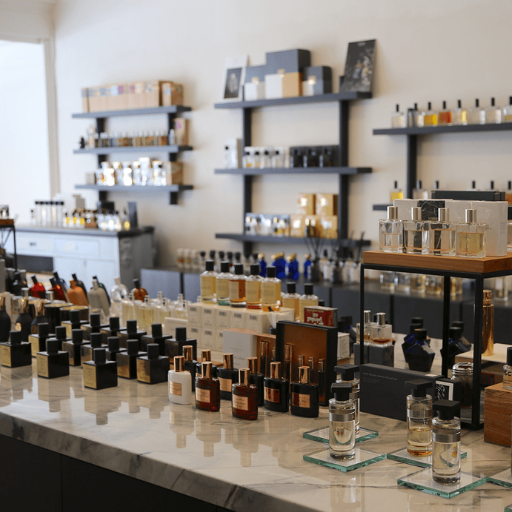
As with all products, proper storage can improve the longevity of perfume. In this case, keeping it in a cool dry area away from sunlight, heat, or humidity will guarantee maximum longevity. Perfect places include a drawer, cabinet, or closet. Storing the perfume bottle is also essential. A perfume bottle with a tightly sealed cap does the best job of preventing air from getting to it. Storing it can also help in retaining its quality too since rooms like bathrooms can have constant elevating temperatures which can have poor effects. Due to the amount of moisture in bathrooms, it will degenerate at a much quicker pace.
Best to keep the perfume in its original container
Keeping perfume in its original container helps greatly with preserving the fragrance’s longevity. Specialty-designed perfume bottles are made to protect contents from light, heat or air and are often made from dark and opaque glass. Not only do they protect fragrance from UV rays but they also prevent it from oxidizing due to air getting into the bottles. Not only can the caps help but the spray mechanisms placed tight also aid in keeping the air getting in. Studies have shown that incorrectly storing items, including pouring perfume into unmarked or brightly colored, unsealed containers, leads to increased evaporation and chemical breakdown. As an example, studies on fragrance volatile compounds reveal fragrance molecules can be altered by the air and light in which they are kept, thus undergoing compositional changes over time. Perfumes are best kept in their original containers—both because of the design and because doing so helps preserve the scent profile.
Following these steps preserves the quality of your favorite perfumes for longer periods.
Environmental factors that cause perfume to expire faster
1. Temperature Extremes
Perfumes can be adversely impacted by both high and low-temperature conditions. Over time, extreme temperatures can lead to perfume degradation. Heat is especially problematic as it changes the scent of the oils and alcohol in the perfume. It is recommended to keep a fragrance below 77°F (25°C) to maintain its composition. On the other hand, freezing temperatures can also adversely impact a perfume’s structure resulting in component separation. To maintain quality, perfumes should be stored between 55°F (13°C) and 72°F (22°C).
2. Direct Sunlight
UV light and direct sunlight pose a substantial risk for perfumes. Sun exposure leads to a weaker fragrance due to oxidation which alters the scent. Research indicates that under UV exposure, the weaker citrus and floral top notes are even more broken down and thus more susceptible during oxidation. During storage, it is advisable to keep perfume bottles in a dark location or opaque containers to reduce the adverse impact of sunlight and UV light exposure.
3. Humidity
Perfumes can undergo chemical decomposition due to excess moisture that may be present in the air. Bathroom storage and other moist areas may increase bacterial growth that can lead to contamination. Ensure storage areas remain cool and dry. Precise, controlled humidity levels within sealed cabinets or containers work best.
4. Air Exposure
Perfumes losing fragrance intensity and undergoing a character change in their formula is an effect of oxidation due to air exposure over long periods of time. Opening a bottle ignites subtle chemical reactions that tarnish the perfume’s components. Preservation is best met with spray bottles which limit airflow, unlike dab or splash bottles which are freely vented. Limiting access to the bottle also aids in extending longevity.
Do different types of perfume expire at different rates?
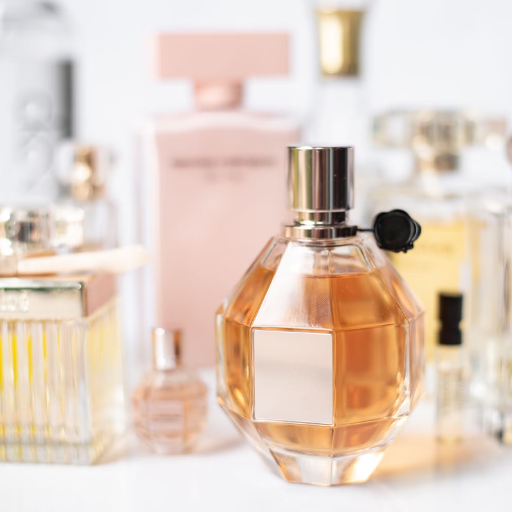
Different types of perfume expire at different rates, yes. Parfum and perfume extract, which are types of perfumes with higher concentrations of essential oils, tend to last longer and expire less, due to lower alcohol content and higher useful life stability. On the contrary, lighter fragrances such as eau de toilette or cologne expire more quickly because of a higher concentration of alcohol and lower oil content. The storage conditions and any environmental factors also significantly impact the longevity of any fragrance.
Why some fragrances expire over time more quickly
The composition of the fragrance, its storage conditions, and exposure to external factors determine the rate of expiration. On the contrary, fragrances with a high concentration of natural ingredients, like essential oils, are more sensitive to factors like increased heat, light, and oxygen making them deteriorate even faster. Take, for instance, citrus-based scents, which are made of natural citrus oils. These types of fragrances are extreme oxidizers, meaning they alter their aroma in a matter of 6 to 24 months.
Equally, the fuel used in a fragrance also determines its longevity. An excess of essential oils may lead to their combination with alcohol ‘fuel’ evaporating faster than intended. With lighter scents like eau de toilette, more oil and less alcohol apportion is said to evaporate rapidly while heavier perfumes, for example, parfum extrait are thicker and do not evaporate as rapidly.
Researchers have proven that alcohol-based perfumes are best stored in dry and darker places like drawers to preclude exposure to sunlight and oxidation. When sealed in airtight containers, oxygen cannot feed on the volatile scented oil as a result, upset the balance of its constituents. Without destabilization during loss of time, the perfume can appreciate, with shelf-life lengthening by years.
Current pragmatic considerations, such as use of biograde and environmentally behaviors eco friendly-sustainable ingredients may however sacrifice long-term stability for environmentally favorable compositions in fragrances as well. Hence giving proactive users more ways to shield and save their cherished scents from quick passing ensures they hold the intended period.
Which perfume ingredients last much longer
Some perfume components last longer than others because of their structural characteristics. Musks, woody notes, and resins tend to hold for a longer duration on the skin as compared to citrus or green notes which are more volatile and lighter in nature. For example, sandalwood, patchouli, and cedarwood are base notes that have a hefty white molecular core and therefore highly dense and very lasting. Furthermore, amber and benzoin not only serve the purpose of adding warmth and depth to fragrances but also prolong them significantly because they are resins.
Natural musks, along with synthetic ones like ambrettolide or Galaxolide, are appealing due to the way the seamlessly merge into a lasting structure and fix the perfume’s odor. Relaxing musks are materials that scientists made for themselves years ago by using obsolete versions of fuel and gas, never intended to turn into fashion items. These materials bound with lower freon in their evaporated state provided much fragrance durability. Top or middle notes evaporate first which is not the case for materials with slow evaporation. New advances have other lab-grade engineer molecules like Iso E Super, which is known to last forever and to hold other ingredients. These molecules’ durability is excellent for anchoring other components. Scent designers can formulate perfumes that last longer then time itself by skillfully blending enduring components.
What should I do with perfume that has gone bad?
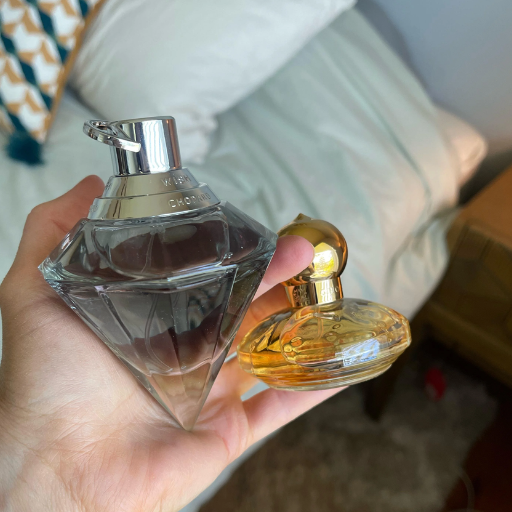
Stop applying perfume that has gone bad to the skin, as the changed smell and degraded ingredients may result in skin irritation. If it is still in its liquid form, you may repurpose it such as scenting potpourri or stationery, using it as a room spray, or scenting stationery. Dispose of it according to the local regulations concerning liquid product disposal.
Ways to repurpose expired perfume
1. Freshen Up Your Linens and Other Fabrics
An expired bottle of perfume can serve as a nice scent for your linens, curtains, and upholstery. Spray a mixture of perfume and water on these fabrics as a freshener. This will help make your home feel welcoming. Remember to do a patch test to see if the mixture will stain.
2. DIY Reed Diffuser
Make a homemade reed diffuser by pouring expired perfume into a small glass jar and placing reed sticks inside. This is a good way to refresh your space without harming the environment as the fragrance will fill the room slowly.
3. Scented Drawer Sachets
You can also revive your wardrobe by putting fragrant small sachets in them. Dropping expired perfume into cotton balls or dried flowers and putting them in sachet bags will do the job of keeping clothes and small accessories smelling fresh.
4. Enhance Candles and Wax Melts
Imbuing air with rich scent can be done without waste. Add a few drops of expired perfume to unscented candles or wax melts. Just remember not to add perfume to open flames directly. Perfume contains flammable alcohol.
5. Custom Art and Crafts
Integrating perfume into paper crafts can add a delicate touch to fragrances, such as on cards and scrapbooks, making them more appealing. To add perfume elegantly, dilute it in water and lightly mist over the paper.
6. As a toilet deodorizer,
Expired perfume can be poured into the toilet tank of the bowl. This helps keep bathrooms fresh without bathing the area in strong scents. Instead of using cheap air fresheners, this could be a better and more practical option.
All of these techniques are ingenious ways to extend the life of an expired perfume without creating waste. Along with being practical, these methods offer a chance to lower one’s carbon footprint, making them a more environmentally friendly alternative.
When to completely dispose of a bottle of perfume
While repurposing old perfumes certainly works in some cases, there are instances where discarding it entirely makes more sense. A perfume bottle should be completely discarded if the scent, color, and consistency have changed significantly. For example, a perfume that smells sour, metallic, or overly alcoholic is no longer suitable for re-use because its chemical structure has degraded. Furthermore, the presence of cloudy liquid or sediment is a key indicator of spoilage that is irreversible.
Statistics show that typical perfumes last between 3 to 5 years from the date of production if stored properly. However, perfumes exposed to extreme heat, humid conditions, or direct sunlight can significantly deteriorate at an accelerated rate. Studies suggest that improper storage can shorten a perfume’s lifespan by 50%. So, if the perfume bottle is kept under poor conditions for a long time, the chances of requiring disposal is higher.
Like any other liquid waste, perfume must be disposed of properly while being mindful of the environment, especially in the manner chosen for disposal. Sinks and toilets are not the best disposal sites because a lot of perfume carries synthetic substances and alcohol which can meddle with aquatic wildlife. The best method is to take paper towels or cat litter, pour the contents there and then throw that in the trash. When suitable, the glass bottle can be recycled which further reduces the carbon footprint. Knowing these rules helps with a more sensible approach towards perfume disposal.
Reference Sources
I found some studies that touch on aspects of perfume quality and detection, though none specifically focus on identifying if a perfume has gone bad. Here are the highlights:
-
Detrimental effects of perfumes, aroma, and cosmetics:
- Discusses the historical use of perfumes and their chemical compositions.
- Highlights the potential for fragrance products to emit harmful compounds over time, which could indirectly relate to signs of degradation.
-
- Focuses on distinguishing counterfeit perfumes from originals using advanced detection methods.
- While not directly about expiration, it provides insights into chemical changes in perfumes that could indicate quality issues.
-
Hydrophobic and rapid-response sensor inks: array-based fingerprinting of perfumes:
- Explores the use of sensor technology to analyze perfume compositions.
- Could be applied to detect changes in fragrance profiles over time, potentially identifying expired perfumes.
If you’d like, I can delve deeper into any of these studies or refine the search further. Let me know!
Frequently Asked Questions (FAQs)
Q: How can you tell if perfume has gone bad?
A: You can tell if a perfume has gone bad by changes in its scent, color, or consistency. If the fragrance smells different or off, it may be a sign your perfume is expired. Additionally, if the color has darkened or the texture feels different, these can be signs of expired perfume.
Q: What are the signs of expired perfume?
A: Signs of expired perfume include a noticeable change in scent, a darker color, or a cloudy appearance. If the fragrance has gone bad, it may also cause skin irritation.
Q: How long does perfume last before it expires?
A: The life of a perfume typically ranges from 3 to 5 years, depending on its composition and storage conditions. High-quality perfumes can even last longer if stored properly.
Q: Does perfume expire if unopened?
A: Yes, even an unopened perfume bottle can expire over time. However, the shelf life of a perfume that is unopened is usually longer, often lasting up to 5 years or more if stored correctly.
Q: What is the shelf life of a perfume?
A: The perfume shelf life generally ranges from 3 to 5 years. Factors like exposure to light, heat, and air can affect how long they last.
Q: How can you make your perfume last longer?
A: To make your perfume last longer, store your fragrance in a cool, dark place away from direct sunlight and heat. Keep the bottle tightly closed to prevent air from degrading the fragrance.
Q: What happens if you use a fragrance that has expired?
A: Using a fragrance that has expired may result in an unpleasant scent or skin irritation. It’s best to avoid using it if you notice any signs your perfume has gone bad.
Q: Is there a way to test your perfume to see if it’s expired?
A: One way to test your perfume is to spray a small amount on a piece of paper and let it dry. If the scent changes significantly or smells off, it may indicate the perfume is expired.
Q: Can storing your fragrance improperly affect its longevity?
A: Yes, improper storage can significantly reduce the life of a perfume. Keeping your fragrance in direct sunlight or in a hot environment can cause it to degrade faster.

